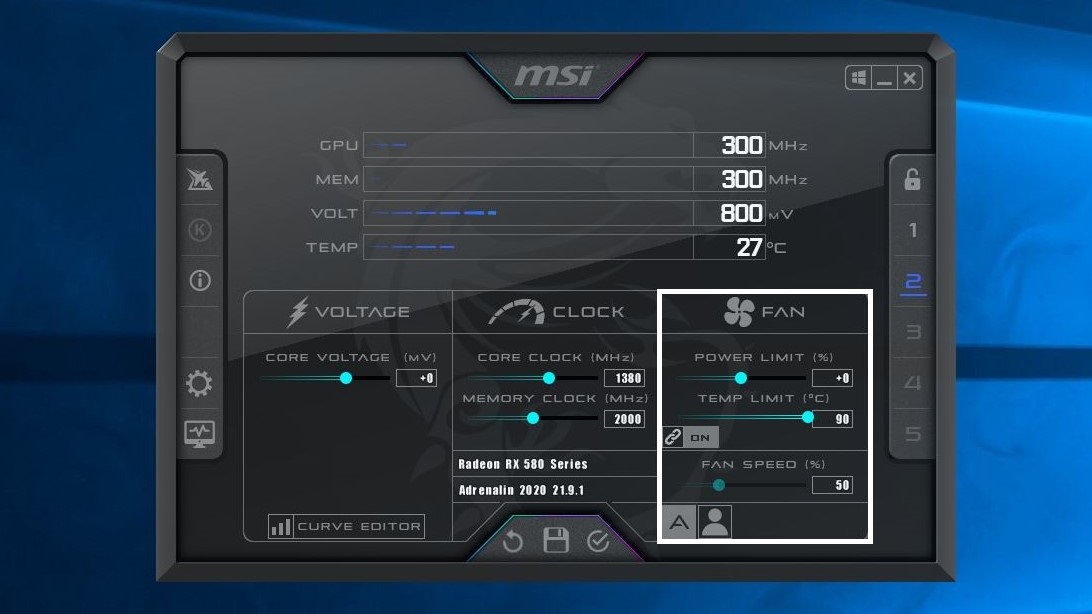

We enlisted MSI’s Afterburner utility for this project. A flaky or unstable system, even if it only occasionally acts up, could be a sign of a marginal component, and overclocking may push it to the point of failure. Your system should also be perfectly stable and fully functional before overclocking. This handy-dandy PSU wattage calculator can also help you spitball the approximate power usage of your PC.įurther reading: How to pick the best PC power supply If your system consumes significantly less than your PSU’s rating, you’ll probably be fine. Cheap power meters that get plugged in between your PSU’s power cable and wall outlet will tell you how much power your rig is using. It’s more likely that you have some headroom, however, because the rest of the components in typical systems shouldn’t consume that much power. If the recommended PSU for your graphics card is 500 watts, for example, and that’s what is installed in your system, you may exceed its capacity while overclocking. As such, if you’re already flirting with the upper limits of your power supply (PSU), overclocking may tip it over the edge and cause system instability, or worse-damage the PSU. Overclocking your graphics card puts more strain on your PC’s power supply.Īs we’ve just mentioned, overclocking a graphics card will result in increased power consumption simply because it requires more juice to run the card’s GPU and memory at higher frequencies. Where the “right” peak temperature lies for each GPU will vary from card to card, but typically, you’ll want to keep it around or below the 90-degree Celsius mark. The GPU-tweaking utilities we mention a little later will all report GPU temps as well. Most motherboard manufacturers have utilities available to read the thermal sensors on their boards, and your system BIOS will report hardware health data. System temperatures can be monitored using any number of tools. The coolers used on most of today’s gaming-oriented cards typically have some built-in headroom to accommodate at least some level of overclocking, but if your card or system already run hot, additional cooling may be required. There are a few important things to consider before overclocking your graphics card, like cooling, power requirements, and general system stability.īy definition, overclocking a graphics card means running it above its stock GPU and memory frequencies, which will result in higher power usage and heat output.


 0 kommentar(er)
0 kommentar(er)
